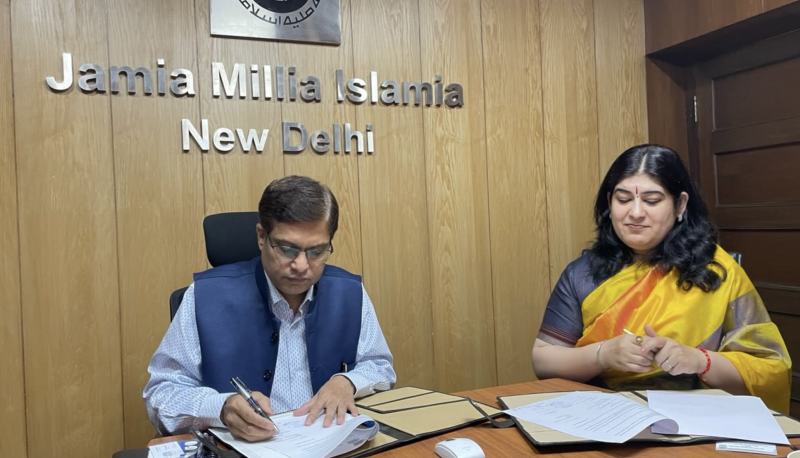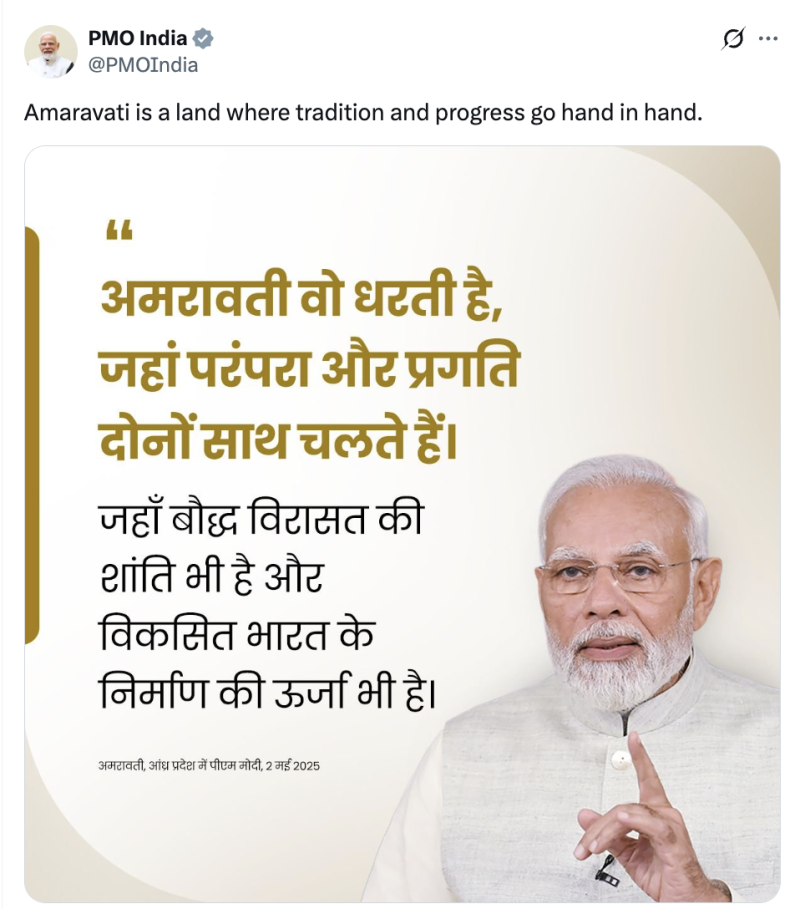A Memorandum of Understanding (MoU) to strengthen institutional capacity for climate integration in urban planning and governance was signed yesterday between Jamia Millia Islamia (JMI), a premier research-intensive, NAAC grade A++ central university, and The Habitat Emprise (THE), a leading organization in sustainable development and urban planning. Prof. Md. Mahtab Alam Rizvi, Registrar of JMI, and Dr. Priyanka Kochhar, CEO of The Habitat Emprise, executed the agreement on behalf of their respective institutions.
The partnership aims to address pressing urban challenges through innovative research, capacity building, and advocacy for sustainable development practices. The MoU outlines joint efforts in the following key areas of collaboration: first, research and publications to carry out joint studies and make policy recommendations on climate integration in urban planning. The second is capacity building, with the aim of offering urban professionals and policymakers training programs and tailored modules. The third area of partnership is advocacy and engagement, which envisages promoting sustainable practices by conducting seminars, workshops, and policy dialogues.
Prof. Hina Zia, Head of the Department of Planning at JMI, and Dr. Priyanka Kochhar, CEO of The Habitat Emprise, will lead the collaboration efforts. This partnership is a significant step toward fostering resilient, inclusive, and climate-sensitive urban environments in India.
Speaking on the occasion, Prof. Rizvi said, “This partnership underscores JMI’s commitment to sustainable urban development and academic excellence. Together with The Habitat Emprise, we aim to create innovative solutions to tackle the challenges of urbanization.”
Dr. Kochhar, expressing her enthusiasm and happiness on signing the significant agreement, said, “The Habitat Emprise is excited to work with JMI, leveraging our expertise in sustainable development to drive impactful change. This collaboration is a testament to the power of partnerships in addressing climate and urbanization challenges.”


